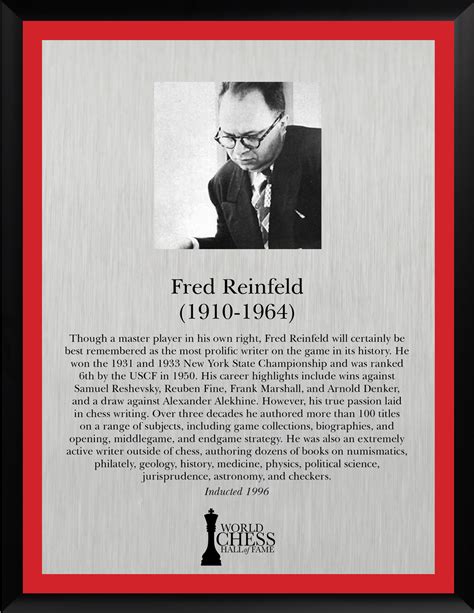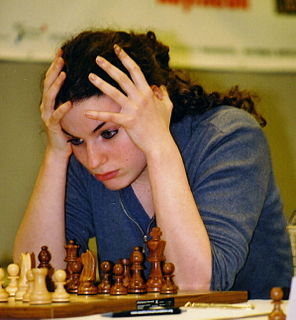A Quote by Anatoly Karpov
The ideal in chess can only be a collective image, but in my opinion it is Capablanca who most closely approaches this.
Quote Topics
Related Quotes
But the thing that was great about Capablanca was that he really spoke his mind, he said what he believed was true, he said what he felt. He [Capablanca] wanted to change the rules [of chess] already, back in the twenties, because he said chess was getting played out. He was right. Now chess is completely dead. It is all just memorisation and prearrangement. It's a terrible game now. Very uncreative.
When I used to go to the Manhattan Chess Club back in the fifties, I met a lot of old-timers there who knew Capablanca, because he used to come around to the Manhattan club in the forties - before he died in the early forties. They spoke about Capablanca with awe. I have never seen people speak about any chess player like that, before or since.
For my victory over Capablanca I am indebted primarily to my superiority in the field of psychology. Capablanca played, relying almost exclusively on his rich intuitive talent. But for the chess struggle nowadays one needs a subtle knowledge of human nature, an understanding of the opponent's psychology.
One interesting indication of Capablanca's greatness is that to non-chess players his name was better known than the names of all other chess masters together! This was due partly to his engaging personality and distinguished appearance: he was one of those exceptional people who at once stand out in a crowd.
The strongest and most evil spirits have to date advanced mankind the most: they always rekindled the sleeping passions - all orderly arranged society lulls the passions to sleep; they always reawakened the sense of comparison, of contradiction, of delight in the new, the adventurous, the untried; they compelled men to set opinion against opinion, ideal plan against ideal plan.
Most chess books only sell a few thousand copies, and a book titled something like "Women in Chess" would sell even fewer. The idea with this title was to spread the book outside the competitive chess world. I'm interested in attracting readers who love chess but play only casually, and feminists interested in male-dominated fields.
The man [who] is greatest and most blessed and joyful [is one] whose life most closely approaches the pattern of Christ. This has nothing to do with earthly wealth, power, or prestige. The only true test of greatness, blessedness, joyfulness is how close can a life come to being like the Master, Jesus Christ. He is the right way, the full truth, and the abundant life.






























